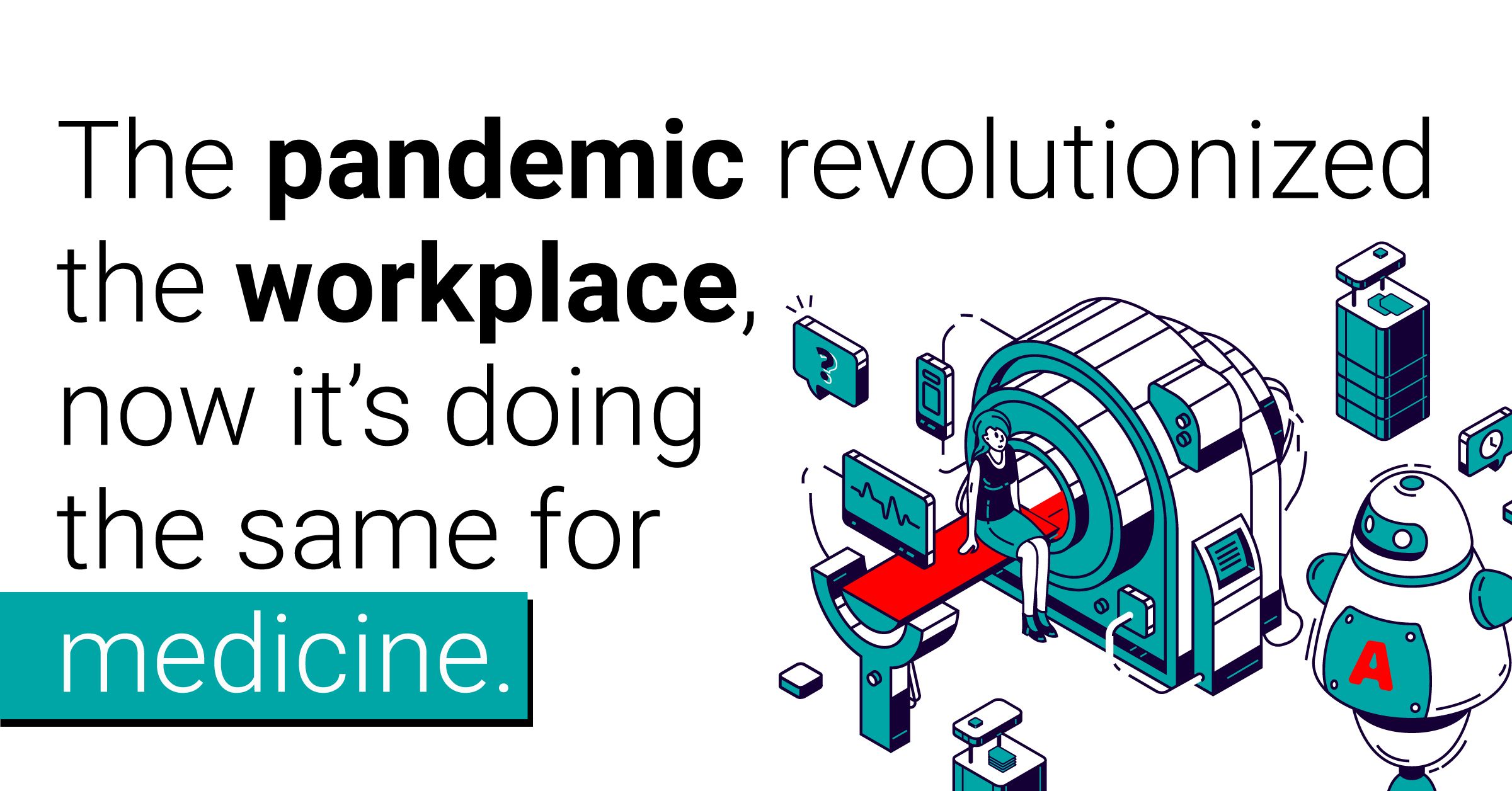
AI in COVID is a radical catalyst for healthcare
The pandemic: a catalyst for radical and positive change in Healthcare?
We’ve seen how the pandemic brought about an almost overnight change in the workplace. What would normally take years, happened in a matter of months. Now, it looks like the pandemic is on course to revolutionize the medical field as well. The pandemic has showcased the flaws of our current health system, and as a result brought about a surge in technological advancements and investment, to radically change how we see healthcare, and how patients are treated.
Due to social-distancing measures, telemedicine has surged in popularity with both doctors and patients alike. Clinicians are embracing tools designed to stay in touch with patients at home, for comfort as well as safety. It really is a no-brainer. If you’re able to have a video call with your doctor to find out what’s wrong instead of coming into an office to be exposed to other sick people, why wouldn’t you?
How has COVID affected the healthcare industry?
Holistic healthcare is now being favored, as a sort of merging between traditional medicine and technology, which is allowing for superior treatments to be offered. “In fact, McKinsey estimates that global revenues from digital health, such as telemedicine, online pharmacies and wearables, will increase from $350bn in 2019 to $600bn in 2024.”
This is the era of transformative diagnoses and treatments.
It was clear for some time that the healthcare industry needed to be revolutionized, much like the workplace. The pandemic has just fast-tracked these developments. Medicine will not only be transformed in terms of patient- doctor digital connectedness, but in AI’s ability to help detect and analyze patient data. This has already been implemented to catch early signs of conditions like diabetes, retinopathy, as well as tuberculosis. This is just the beginning. What’s the next step? Currently, almost all of the data used to create AI diagnostic tools are from sick patients (understandably), but that doesn’t help identify the pre-diagnosis symptoms. Data is desperately needed from healthy individuals. This way, doctors can better detect the earliest signs of a problem, before it actually becomes a problem.
It would be bold to say that there are some positive sides to the pandemic, but I think that if we didn’t admit this, we wouldn’t be very truthful. We have seen incredibly positive changes in the work space, and now medicine. The pandemic highlighted our society’s weaknesses, in order to allow us to improve. No one wants this pandemic to last any longer, but perhaps there is a light at the end of the tunnel.
Read the full article here.
Talk to us: Do you feel the pandemic will lead to positive improvements in the healthcare industry? Let us know in the comments below, we would love to hear from you!
Take a look at more top articles, trends and influencers by signing up to our newsletter - By getting to choose which topics interest you the most, you get the latest news delivered with ease.